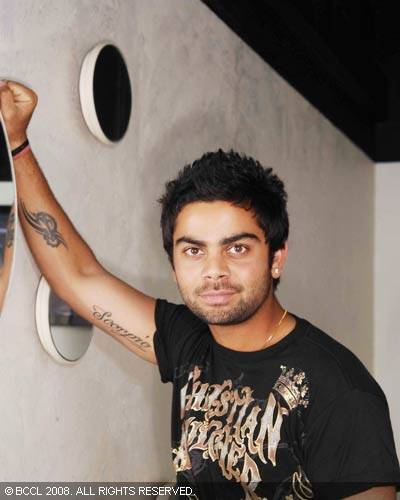IMAGINE a Top Ten list of all-time great composers that does not include the name of Wolfgang Amadeus Mozart? Imagine a Top Ten list of all-time great painters from which Vincent Van Gogh is missing?
Well, when gimmicky, infantile exercises are undertaken, such things do happen. It did a few months ago when the International Cricket Council came up with its all-time best World XI. But what is worse came three days ago, when Dr. Nicholas Rohde from Australia's Griffith University got his No.1 wrong in a list of batting greats in cricket. That is unpardonable and doesn't say much for the researcher's analytical acuity.
To think that any human being who ever picked up a cricket bat was greater than Don Bradman — no matter who that person may be, no matter how many hundreds of millions of fans happen to worship him — is nothing but puerile phantasm.
You think this is laughable and unthinkable and preposterous? It is none of these, actually. You just do not employ simplistic research methods to rank sporting greats. Or ask lay fans to vote, as did ICC, if you are serious about conducting what might be an interesting — if ultimately pointless — exercise.
Instead, you appoint a panel of experts — former cricketers, journalists and officials — to debate the issue and come up with names.
This is especially so in a sport played with any kind of seriousness in less than a dozen countries and one whose fan base is dominated by citizens of a single nation — India.
It is obvious that a vast majority of voters who chose the ICC all-time best World XI were Indians, for four of their countrymen found themselves in the list. This is not to take anything away from the merits of Sachin Tendulkar, Kapil Dev, Sunil Gavaskar and Virender Sehwag.
But how can Kapil Dev get in ahead of Gary Sobers, or Virender Sehwag ahead of Jack Hobbs? Of course, the cruel joke was, Viv Richards, arguably the most destructive of post-war batsmen, did not find a place in this list.
Defying all logic
While all lists, including those put together by the best of experts, are bound to have an element of subjectivity involved, online polls make a mockery of common sense. And the latest dished out by Dr. Rohde defies all logic. Even Sachin would laugh at it.
What is more, the Australian researcher's Top Ten does not feature the names of Viv Richards, George Headley, Jack Hobbs and Barry Richards. But, somehow, Allan Border, Steve Waugh and Javed Miandad are in it.
But the point of this column is this: how can a batsman who played in an era of uncovered wickets and without modern protective gear — most of all, one who missed playing international cricket during his peak years because of the Second World War — and ended up with a batting average of 99.94 in 52 Tests with 29 hundreds, be ranked below anyone else who ever played the game?
A school-kid couldn't have got that wrong. For, in no other sport has one player stood so far above the rest. The word ‘incomparable' is often used carelessly in sports journalism. But if there is one batsman who is beyond comparison, it is most certainly Bradman.
For cricket's sake, and sanity's sake, dear researchers, please leave the Don alone!
When he did what he did — which is, bat like no man ever did, before or after — the Don didn't appear to be human. Could a mortal, a mere mortal, do all this, people wondered in the 1930s and 1940s as the greatest batsman in history rewrote record after record.
And the passing of time has done nothing to diminish Bradman's greatness, or take the sheen off his image as a superman. He was a freak of nature who functioned consistently at an altitude no other batsman could dream of rising to.
In an ephemeral world where everything has a limited appeal, where every sports accomplishment has a limited shelf life when it comes to popular appeal, the Bradman legend outgrew itself with each passing era. And the arrival of a Viv Richards or a Brian Lara or a Sachin Tendulkar did nothing to take anything away from the Don, or displace him from his pedestal.
Nobody ever had the aura of invincibility that Bradman did. Had the Second World War not intervened, the greatest cricketer of all time would have perhaps scored over 12,000 runs and averaged over 100.
In an era of helmets and protective gear and batsmen-friendly pitches, at a time when 50-plus is still a true yardstick of greatness, one can surely get an idea of where the Don stands — alone and apart.







